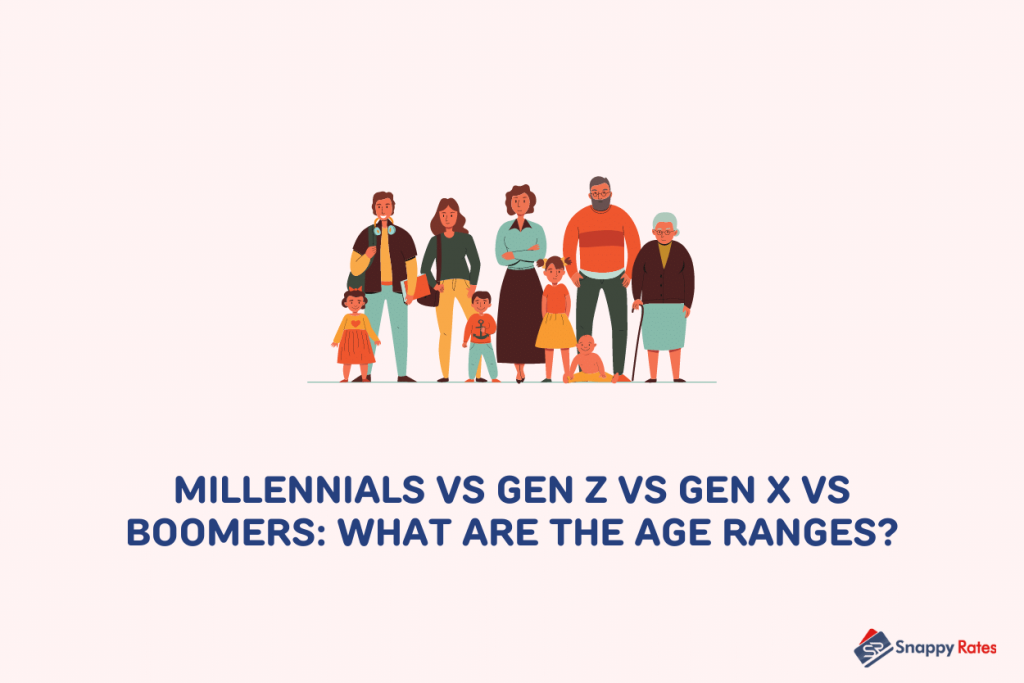If you’re wondering how long the average Canadian lives, you’re in the right place. Canadians born today are expected to live about 83 years on average, a slight increase from the predicted lifespan of those born in 2021.
In 1950, the life expectancy of an average Canadian was just 68 years. In other words, we’re living 22% longer than we were 70 years ago.
While these statistics are interesting and informative, life expectancy values are even more relevant when they’re broken down by various demographic factors.
In this comprehensive guide, we’ll cover dozens of fascinating Canadian life expectancy statistics.
Life Expectancy Explained
Encyclopedia Britannica defines life expectancy as the average number of additional years that a person of a certain age can expect to live.
Life expectancy is most commonly measured from birth and given as the number of years that would comprise one’s lifespan.
Life expectancy is an estimated value that projects age-specific death rates for a given period over the entire lifetime of the population born during a given time.
It is affected considerably by demographic factors like age, sex, race, and location. That’s why life expectancy estimates are commonly given for specific categories of people rather than for the general population.
Average Male Life Expectancy in Canada
Across Canada, the average male life expectancy at birth is 78.8 years. This differs slightly by province, with males from British Columbia living the longest at 79.5 years.
Males from Nunavut have the shortest life expectancy, clocking in at just 68.8 years.
Average Female Life Expectancy in Canada
For Canada as a whole, women’s life expectancy at birth averages 83.3 years. Like male life expectancy, female life expectancy differs significantly by province.
Women in British Columbia are living the longest, averaging 83.9 years. Women in Nunavut again have the shortest life expectancy at birth, measuring only 75.2 years.
Male vs. Female Life Expectancy in Canada
On average, Canadian women are living significantly longer than their male counterparts. With the average male life expectancy at 78.8 years and the average female life expectancy at 83.3 years, women are living an average of 4.3 years longer than men.
Both biological and behavioural factors contribute to this difference. According to Time magazine, men are more likely to smoke, drink, and be overweight.
They’re also less likely to seek medical attention promptly when issues arise, and if they’re diagnosed with a disease, they’re less likely to follow the treatment plan closely.
On top of these factors, men have higher levels of testosterone. That makes them more likely to take life-threatening risks.
Higher testosterone levels may explain why men are more likely to die in car accidents, brawls, or gun fights than women.
5 Life Expectancy Statistics
As Canadians live longer and longer, life expectancy is changing rapidly. Especially among Canada’s oldest population group, those aged 85 and older, there are some striking demographic differences.
#1: Canadians Are Growing Older
In the past ten years, the number of Canadians aged over 85 years grew by 19.4%. The centenarian population (or people who are 100 years or older) grew even faster, by 41.3%. The number of centenarians in Canada currently exceeds 8,000.
#2: Women Are Living Longer Than Men
As evidenced by the continued discrepancies between genders shown by life expectancy data, women are living longer than men. This difference is especially stark when it comes to Canada’s oldest residents.
There are nearly two women for every man aged 85 or older. Once people reach 100 years old, there are nearly five women for every man.
#3: Canadians Have the 17th Highest Global Life Expectancy
In 2018, Canada was ranked 17 on a list of global life expectancies. That means that only 16 other countries have residents living longer than ours.
Canada’s ranking may drop in the near future due to improving healthcare in other parts of the world, but our life expectancy continues to grow in terms of raw numbers.
#4: Canada’s Life Expectancy is Higher Than America’s
While Canada and the U.S. are both highly developed nations with globally impressive life expectancies, Canada’s life expectancy is substantially higher than America’s.
The average U.S. life expectancy is just 79 years, meaning that Canada is about four years longer.
#5: Canada’s Highest Death Rate Occurred in 2020
Due in part to the COVID-19 pandemic, Canada experienced its highest death rate in recent history in 2020. The number of deaths recorded that year was 307,205.
The mortality rate came in at 8.1%, significantly higher than 2016’s mortality rate of 7.4%.
Life Expectancy in Canada at Birth and Age 65
The most common measures of life expectancy are given at birth and at age 65. In each case, the life expectancy figure is an estimate that predicts how many more years a person at that age will live.
The following life expectancy charts break down life expectancy in Canada by province and territory and by gender.
| Life Expectancy in Canada at Birth | ||
| Province/Territory | Males | Females |
| Newfoundland and Labrador | 76.5 | 81.2 |
| Prince Edward Island | 77.5 | 82.8 |
| Nova Scotia | 77.7 | 82.4 |
| New Brunswick | 77.5 | 82.8 |
| Quebec | 78.8 | 83.4 |
| Ontario | 79.2 | 83.6 |
| Manitoba | 77.0 | 81.9 |
| Saskatchewan | 77.0 | 82.1 |
| Alberta | 78.5 | 83.0 |
| British Columbia | 79.5 | 83.9 |
| Yukon | 74.2 | 79.1 |
| Northwest Territories | 75.1 | 80.1 |
| Nunavut | 68.8 | 75.2 |
| Life Expectancy in Canada at Age 65 | ||
| Province/Territory | Males | Females |
| Newfoundland and Labrador | 16.6 | 19.7 |
| Prince Edward Island | 17.6 | 20.7 |
| Nova Scotia | 17.5 | 20.9 |
| New Brunswick | 17.7 | 21.1 |
| Quebec | 18.3 | 21.6 |
| Ontario | 18.7 | 21.7 |
| Manitoba | 17.7 | 21.2 |
| Saskatchewan | 17.9 | 21.3 |
| Alberta | 18.5 | 21.6 |
| British Columbia | 19.2 | 22.0 |
| Yukon | 15.8 | 18.4 |
| Northwest Territories | 16.6 | 19.7 |
| Nunavut | 13.9 | 17.0 |
How Life Expectancy is Changing in Canada
In 1921, the average Canadian life expectancy was only 57.1 years. Today, it’s around 83 years, meaning it’s increased by about 45% in the last century. That’s an impressive gain.
Reduced infant mortality rates have greatly contributed to Canada’s increased life expectancy. Canada’s nationalized healthcare system has made high-quality medical care available to citizens across the country, which helps people live longer, fuller lives.
In recent years, Canada’s life expectancy has suffered slightly due to the COVID-19 pandemic. The pandemic led to over 15,600 deaths in Canada, mostly among older citizens.
Those deaths led to an estimated reduction in life expectancy, around 0.41 years on average, for Canadians of both genders.
How to Increase Your Life Expectancy
There are a number of things that individuals can do to live longer. For starters, it’s important to reduce exposure and risks related to common causes of premature deaths.
These common causes include cancer, heart disease, stroke, chronic lower respiratory diseases, and diabetes. Understanding your current health and seeing a doctor is a good place to start.
The journal Circulation published a study that demonstrated how certain lifestyle factors could affect life expectancy and reduce the risks of these chronic illnesses.
Each of the following lifestyle factors is associated with an additional two to three years of life:
- Reduce or quit smoking
- Eat healthy foods
- Limit drinking alcohol
- Maintain a healthy weight
- Exercise daily.
References
FAQs
How long does the average male live in Canada?
The average Canadian male lives to be 78.8 years old. That’s a 2.3% increase from the average male life expectancy in Canada 20 years ago.
How long does the average female live in Canada?
The average female in Canada lives to be 83.3 years old, 4.5 years older than the average Canadian man. That’s a 1.5% increase from the average female life expectancy in Canada 20 years ago.
What is the life expectancy of a 70-year-old Canadian male?
An average 70-year-old Canadian male is expected to live 13.2 additional years. That means that a person is predicted to reach age 83, which is on par with the average Canadian life expectancy from birth.
What is life expectancy at birth?
Life expectancy at birth refers to the estimated number of years that people born at a given time are expected to live. For instance, the average Canadian life expectancy at birth is about 83 years. That means that the average baby born in 2023 is expected to live about 83 years.
How long will the average 65-year-old live?
The average 65-year-old in Canada will live 20.2 more years. That means that once a person reaches the age of 65, they’re likely to live until they’re 85, exceeding the average Canadian life expectancy of 83 years.
What are the odds of living until 90?
Individuals aged 90 and older amount to 2.2% of the Canadian population. That means that at birth, the average Canadian has a 2 in 100 chance of living to be 90 years old.
Which country has the highest life expectancy?
San Marino, a small country in Europe, had the highest life expectancy in 2022, with female life expectancy at 89 and male life expectancy at 85. Japan came in second, with female life expectancy at 88 and male life expectancy at 84.
Related:





